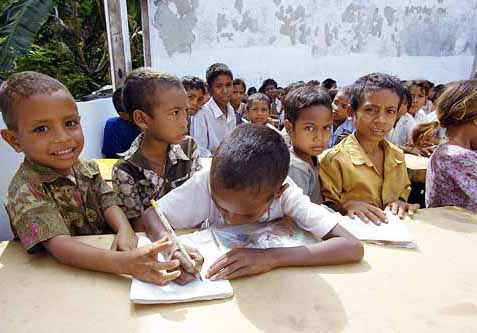
Apr 2, 2015
On 1 April 2015, the ICJ made a submission to the UN Committee on the Rights of the Child in response to the Committee’s initial call for comments on its project of elaboration of a General Comment on the rights of adolescents under the UN Convention on the Rights of the Child.
The ICJ’s submission focuses on adolescents’ right to comprehensive sexuality education, as a human right with specific relevance to the respect, protection and realization of the rights of adolescents under the Convention.
Global-Submission CRC GC right of adolescents -LegalAdvocacy-2015-ENG

Feb 27, 2015 | Eventos, Noticias
Presentación de la obra de teatro DESIDENCIAS y debate. Este es el primer evento de esta indóle que la CIJ lleva a cabo a favor de la promoción de los derechos humanos de las personas LGBTI en Guatemala.
La CIJ en asocio con la Oficina del Alto Comsionado de las Naciones Unidas para los Derechos Humanos en Guatemala (OACNUDH), el Programa Conjunto de las Naciones Unidas sobre el VIH/SIDA (ONSIDA), la Procuraduría para la Defensa de los Derechos Humanos (PDH) y con la colaboración de OASIS, llevó a cabo la presentación de la Obra DESIDENCIAS de la Colectiva Siluetas y la entrega de la Guía para profesionales del CIJ sobre orientación sexual, identidad de género y Derecho Internacional de los Derechos Humanos.
A la actividad asistieron más de 250 personas de diferentes organizaciones de la sociedad civil, operadores de justicia, estudiantes universitarios y público en general.
La Colectiva Siluetas inció a mediadios del año 2001 y actualmente la intergran tres guatemaltecas: Camilia Urrutia, Tatiana Palomo y Lu Robles y, la salvadoreña, Laia Cañénguez. La puesta en escena de la Obra DESIDENCIAS estuvo a cargo de Camila Urrutia, Laia Ribera, Lola Vásquez y Gabriel Álvarez, actrices lesbianas, transgénero y transexuales.
La obra expone muchos tabús dentro de la sociedad guatemalteca sobre la identidad sexual y la orientación de género.
La CIJ impulsará nuevas acciones para la promoción de la no discriminación y del derecho a la igualdad así como de otros estándares internacionales a favor de las personas LGBTI en Guatemala.

Feb 27, 2015 | Events, News
Presentación de la obra de teatro DESIDENCIAS y debate. Este es el primer evento de esta indóle que la CIJ lleva a cabo a favor de la promoción de los derechos humanos de las personas LGBTI en Guatemala.
La CIJ en asocio con la Oficina del Alto Comsionado de las Naciones Unidas para los Derechos Humanos en Guatemala (OACNUDH), el Programa Conjunto de las Naciones Unidas sobre el VIH/SIDA (ONSIDA), la Procuraduría para la Defensa de los Derechos Humanos (PDH) y con la colaboración de OASIS, llevó a cabo la presentación de la Obra DESIDENCIAS de la Colectiva Siluetas y la entrega de la Guía para profesionales del CIJ sobre orientación sexual, identidad de género y Derecho Internacional de los Derechos Humanos.
A la actividad asistieron más de 250 personas de diferentes organizaciones de la sociedad civil, operadores de justicia, estudiantes universitarios y público en general.
La Colectiva Siluetas inció a mediadios del año 2001 y actualmente la intergran tres guatemaltecas: Camilia Urrutia, Tatiana Palomo y Lu Robles y, la salvadoreña, Laia Cañénguez. La puesta en escena de la Obra DESIDENCIAS estuvo a cargo de Camila Urrutia, Laia Ribera, Lola Vásquez y Gabriel Álvarez, actrices lesbianas, transgénero y transexuales.
La obra expone muchos tabús dentro de la sociedad guatemalteca sobre la identidad sexual y la orientación de género.
La CIJ impulsará nuevas acciones para la promoción de la no discriminación y del derecho a la igualdad así como de otros estándares internacionales a favor de las personas LGBTI en Guatemala.

Jan 29, 2015
Today, the International Commission of Jurists (ICJ) salutes Dr Lydia Foy for her courage and determination and congratulates her for bringing legal recognition of transgender people finally within reach in Ireland.
During a period spanning over two decades, Dr Lydia Foy was forced repeatedly to bring legal proceedings challenging the Irish authorities’ continuing failure to issue her with a new birth certificate reflecting legal recognition of her female gender.
The ICJ intervened before the High Court in Dublin as an amicus curiae, a friend of the court, in the latest case brought by Dr Foy. She sought an effective remedy against the Irish State’s violation of her right to respect for her private life as a result of the authorities’ failure to make provisions for the legal recognition of her acquired gender identity.
Today, 29 January 2015, the Irish state and Dr Foy formally settled the case before the High Court following the publication and introduction of the Gender Recognition Bill in the Oireachtas (the Irish Parliament), and the start of the parliamentary debate on the Bill.
It is high time that Ireland enacts legislation giving effect to their international human rights legal obligation to legally recognize people’s preferred gender identity. The ICJ urges the Irish authorities to proceed promptly to ensure that trans persons in Ireland obtain as of right a birth certificate showing the gender that they prefer. In doing so, the Irish authorities should ensure that each person, whatever their gender identity, may enjoy their internationally recognized human rights without discrimination, including their right to respect for their private life.
Background
In October 2014 the ICJ filed written legal submissions in Dr Foy’s case to assist the High Court in the determination of certain points of law relating to the right to an effective national remedy under the European Convention on Human Rights. The organization’s submissions addressed, among others, the requirement that a domestic remedy be effective in law and practice. Namely, that a remedy must be accessible and enable the enforcement of the substance of the rights at stake; and that the national authority before which recourse is had must be capable of granting an appropriate relief, and offer reasonable prospects of success.
The ICJ was represented pro bono by Gráinne Gilmore BL and Elizabeth Mitrow and Wendy Lyon of KOD Lyons Solicitors.

Nov 21, 2014
The ICJ welcomes the UN General Assembly’s Third Committee’s adoption of resolution A/C.3/69/L.47 on Extrajudicial, summary or arbitrary executions on 19 November most recently.
The resolution, which is introduced biennially, urges States to protect the right to life of all people. Importantly, it calls upon States to investigate killings based on discriminatory grounds, including killings that target people based on their sexual orientation or gender identity. It is the only resolution at the General Assembly to make specific reference to sexual orientation and gender identity.
The resolution was introduced by Finland and co-sponsored by 62 additional states. The support came after a concerted effort by civil society to ensure the successful adoption of the resolution, culminating in a joint letter to all States by 30 NGOs, including the ICJ.
An effort led by Egypt to weaken the resolution, by introducing an amendment that would have removed reference to any of the groups particularly at risk of extrajudicial killings, was defeated by a vote of 86 against, 53 in favour and 24 abstaining.
The resolution was adopted 111 to 1, with 63 abstentions. Kiribati after the vote declared their intention to change their ‘no’ vote to abstention.









